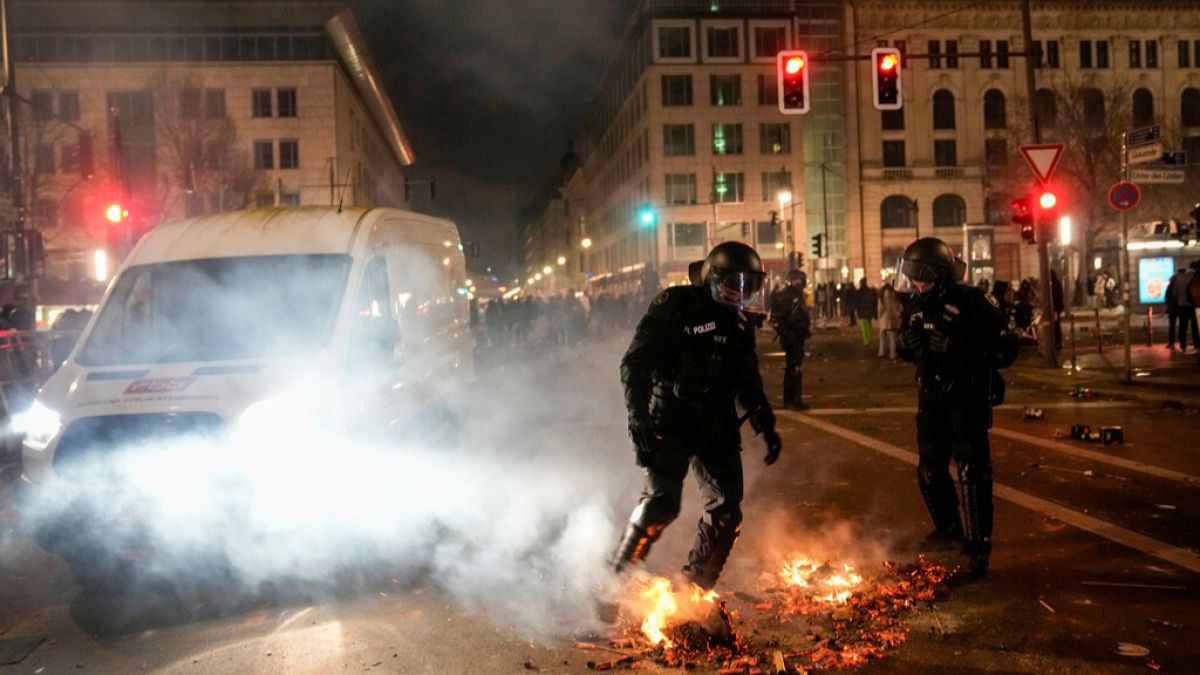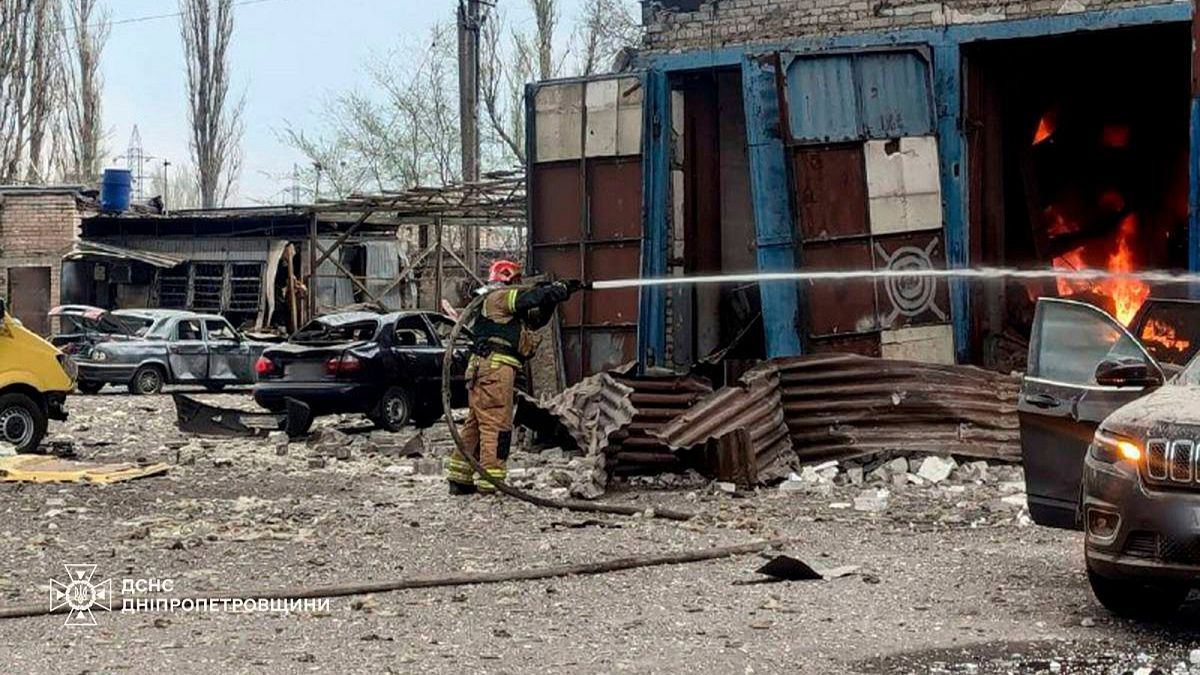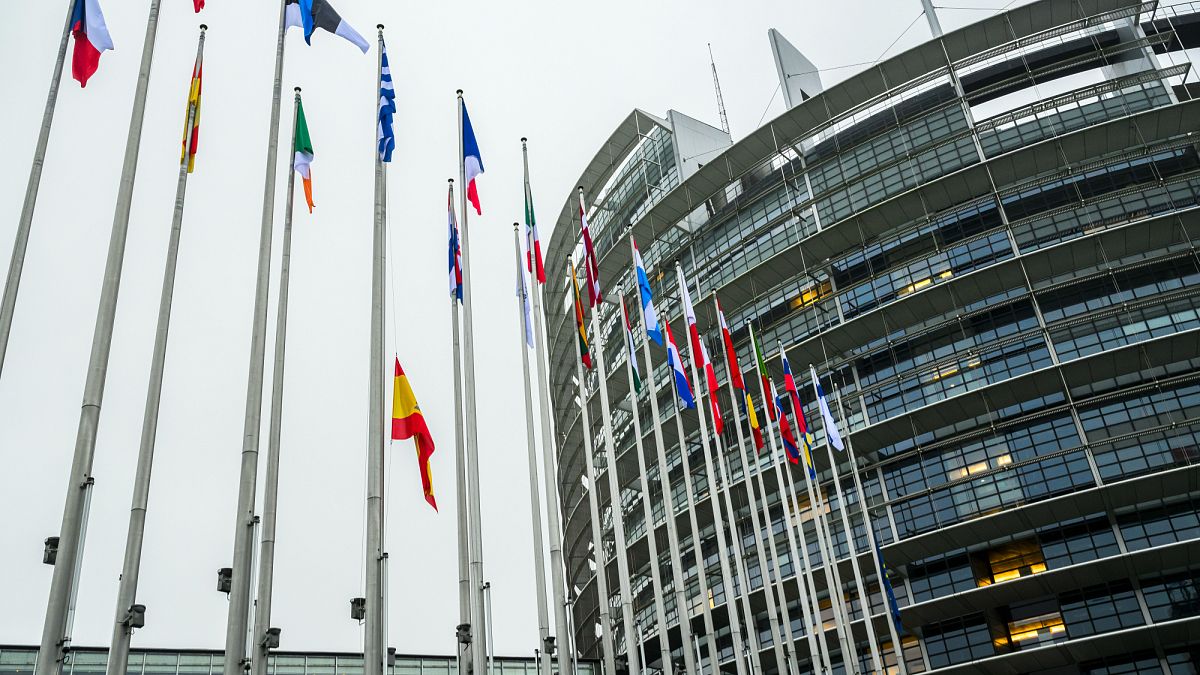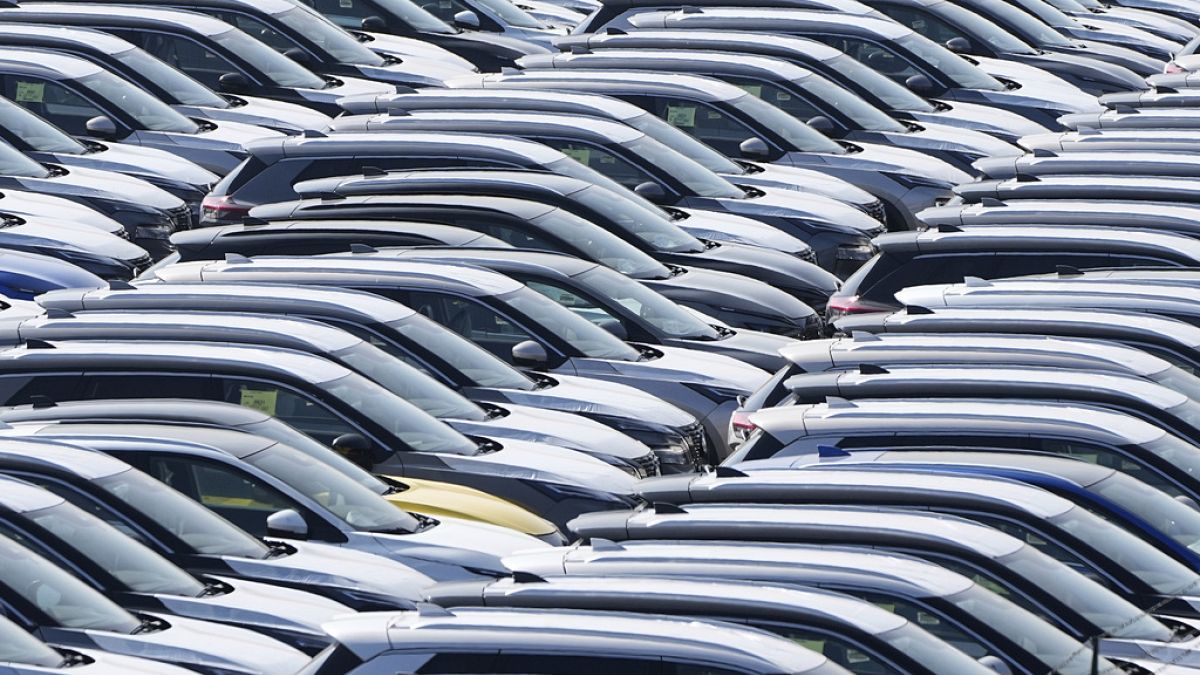Germany’s boisterous New Year’s Eve celebrations saw five people killed across Germany and 400 arrested in Berlin alone, with officials questioning how they can reign in the chaos.
German officials have called for restrictions on illegal fireworks as well as harsher sentences for rioters attacking emergency workers after five people were killed, and dozens of civilians and police officers were injured across Germany on New Year’s Eve.
Officials have pointed particularly to the use of “kugelbomben” or bullet bombs — explosives that are legally restricted to professional firework displays — for the multiple injuries from fireworks across the country, including 17 in Berlin alone.
“The severity of the injuries [this year] is unusual,” a spokesperson for the UKB hospital in Berlin, where small children were brought in for serious injuries from fireworks, told local media.
“For young men, it’s no longer enough that it’s the sparkler. It is also no longer the legal firecracker,” said Jochen Kopelke, federal chairman of the police union, GdP, adding that bullet bombs with more explosive power were being thrown into crowds.
The bombs are largely imported into Germany from neighbouring countries such as Poland and the Czech Republic and are illegal in Germany aside from professional firework displays.
Politicians this year called for stricter border controls to limit the use of illegal pyrotechnics, with CDU politician Burkard Dregger calling the use of bullet bombs the “main cause of the injuries and property damage” this year.
“The import of banned fireworks from eastern neighbouring countries has got to be stopped with even stricter border checks,” Dregger told broadcaster RBB.
Five people died across Germany, the majority from homemade pyrotechnics that exploded prematurely. At least one death, of a 21-year-old man in Brandenburg, is being investigated over the use of an illegal firework.
Fatal accidents from fireworks as well as calls to restrict them are nothing new in Germany, where the use of fireworks is permitted for a limited number of hours on New Year’s Eve stretching into the next day.
The German pyrotechnics associations have said that most deaths and injuries from fireworks can be traced back to illegal and DIY firework usage rather than pyrotechnics sold legally in shops in the run-up to the evening.
The use of personal fireworks, however, is lightly regulated and illegal fireworks are often advertised for purchase on social media in the run-up to the evening.
Personal fireworks are also used against emergency personnel in riots across Germany. In Berlin, 400 people were arrested after confrontations and attacks injured 30 police officers over the course of the night. One policeman in Berlin underwent surgery after being shot at by an illegal firecracker, according to a police spokesman.
Similar scenes were seen across Germany, with emergency responders reporting attacks involving fireworks in Hamburg, Leipzig, Kiel and Cologne.
“The annual brutalisation on New Year’s Eve is almost unbearable,” Jan Krumlovsky, state chairman of the GdP Saxony said of this year’s chaos.
Federal Interior Minister Nancy Faeser told tabloid newspaper Bild that tougher penalties should be implemented for those who attack emergency services.
She said a draft law imposing five years in prison for those who lure police officers, paramedics or doctors into “dangerous ambushes” should be adopted before the country holds national elections in February.













